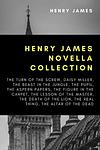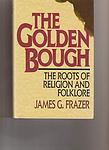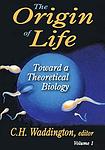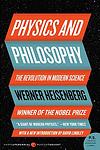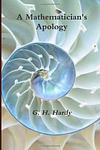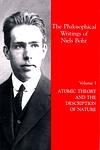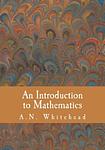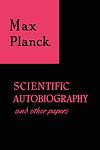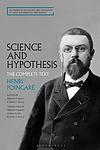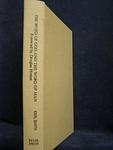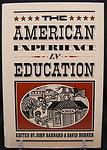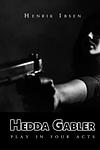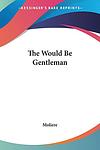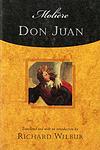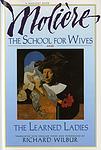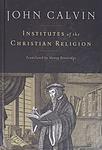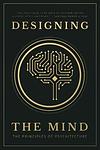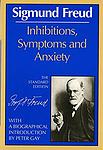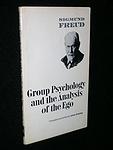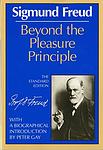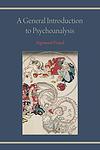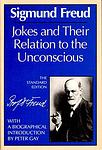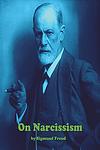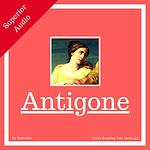Great Books of the Western World
This is one of the 284 lists we use to generate our main The Greatest Books list.
-
Waiting for Godot by Samuel Beckett
"Waiting for Godot" is a play that explores themes of existentialism, despair, and the human condition through the story of two characters, Vladimir and Estragon, who wait endlessly for a man named Godot, who never arrives. While they wait, they engage in a variety of discussions and encounter three other characters. The play is characterized by its minimalistic setting and lack of a traditional plot, leaving much to interpretation.
-
Animal Farm by George Orwell
"Animal Farm" is a satirical fable set on a farm where the animals revolt, overthrow their human farmer, and take over the running of the farm for themselves. The story is an allegory of the Russian Revolution and the rise of Stalin, and the tale is told by the animals that inhabit the farm, primarily pigs who become the ruling class. Despite their initial attempts at creating an equal society, corruption and power ultimately lead to a regime as oppressive as the one they overthrew.
-
The Short Happy Life of Francis Macomber by Ernest Hemingway
"The Short Happy Life of Francis Macomber" is a story about a wealthy American man who, while on a safari in Africa, gains courage and personal growth after initially behaving in a cowardly manner when faced with danger. This transformation, however, leads to his wife killing him, possibly accidentally, out of fear that his newfound courage would end their marriage. The narrative explores themes of courage, masculinity, and the dynamics of power in relationships.
-
Mother Courage and Her Children by Bertolt Brecht
Set against the backdrop of the Thirty Years' War, the book tells the story of a canteen woman, Mother Courage, who pulls her cart with her three children across war-torn Europe. It explores her struggles and survival tactics as she tries to profit from the war while keeping her children safe. The narrative is a profound critique of war and its consequences, highlighting the human cost of conflict and the often futile search for prosperity and security in a chaotic world.
-
A Rose for Emily by William Faulkner
"A Rose for Emily" is a Southern Gothic short story about the life of Emily Grierson, a woman from a once prestigious family who lives in isolation in her decaying mansion in a small Southern town. Emily's life is narrated through the eyes of the townspeople, revealing her struggles with her father's controlling nature, her romantic relationship with a man beneath her social status, and her descent into madness. The story is renowned for its unexpected and shocking conclusion, which reveals a dark secret Emily has been hiding in her home.
-
The Great Gatsby by F. Scott Fitzgerald
Set in the summer of 1922, the novel follows the life of a young and mysterious millionaire, his extravagant lifestyle in Long Island, and his obsessive love for a beautiful former debutante. As the story unfolds, the millionaire's dark secrets and the corrupt reality of the American dream during the Jazz Age are revealed. The narrative is a critique of the hedonistic excess and moral decay of the era, ultimately leading to tragic consequences.
-
Mourning Becomes Electra by Eugene O'Neill
"Mourning Becomes Electra" is a trilogy of plays that retells the Oresteia story of the House of Atreus in a modern American setting. The narrative explores the themes of revenge, obsession, and guilt within the Mannon family, who are haunted by a dark, cursed past. The plot follows the aftermath of the American Civil War, with the characters struggling to escape their tragic fate, ultimately leading to their downfall.
-
The Prussian Officer by D. H. Lawrence
"The Prussian Officer" is a tale of a young soldier and his authoritarian captain in the Prussian army. The captain, who is of noble lineage, is envious and resentful of the soldier's youth and attractiveness. As the captain's jealousy grows, he becomes increasingly abusive towards the soldier, inflicting physical and psychological torment. The story reaches a climax when the captain's cruelty drives the soldier to a breaking point, leading to a violent confrontation between the two, which ends in tragedy.
-
The Metamorphosis by Franz Kafka
The book tells the story of a man who wakes up one morning to find himself transformed into a giant insect. His transformation causes him to lose his job and become ostracized from his family, who are horrified and repulsed by his new form. As he grapples with his new reality, he becomes increasingly isolated and starts to lose his sense of humanity. The book explores themes of alienation, guilt, and identity, and is a profound examination of the human condition.
-
To the Lighthouse by Virginia Woolf
This novel is a pioneering work of modernist literature that explores the Ramsay family's experiences at their summer home on the Isle of Skye in Scotland. The narrative is divided into three sections, focusing on a day in the family's life, a description of the house during their absence, and their return after ten years. The book is known for its stream of consciousness narrative technique and its exploration of topics such as the passage of time, the nature of art, and the female experience.
-
A Portrait of the Artist as a Young Man by James Joyce
This novel is a semi-autobiographical account of a young man's intellectual and artistic development in late 19th-century Ireland. The protagonist struggles with issues of identity, faith, and nationality, ultimately rejecting the traditional values of his Catholic upbringing to pursue his own path as an artist. The book is renowned for its innovative narrative style and its exploration of themes such as individuality, freedom, and the nature of art.
-
Death in Venice by Thomas Mann
"Death in Venice" is a novella that explores the life of Gustav von Aschenbach, a famous writer in his early fifties who embarks on a journey to Venice after experiencing a creative block. In Venice, he becomes obsessed with a beautiful Polish boy named Tadzio, whom he sees at the hotel where he is staying. Aschenbach's fascination with Tadzio becomes a metaphor for his own internal struggle with his repressed passions and his need for aesthetic beauty. The story culminates in Aschenbach's death as a cholera epidemic sweeps through Venice. His demise symbolizes the destructive power of his unfulfilled longing and his ultimate surrender to his repressed desires.
-
A Lost Lady by Willa Cather
"A Lost Lady" is a story set in the American West, focusing on a beautiful and captivating woman who is married to a much older, wealthy railroad magnate. As her husband's health and fortune decline, she becomes involved with a younger man, which leads to scandal. The narrative explores themes of changing societal norms, the decline of the pioneer era, and the transformation of the American West.
-
In Search of Lost Time by Marcel Proust
This renowned novel is a sweeping exploration of memory, love, art, and the passage of time, told through the narrator's recollections of his childhood and experiences into adulthood in the late 19th and early 20th century aristocratic France. The narrative is notable for its lengthy and intricate involuntary memory episodes, the most famous being the "madeleine episode". It explores the themes of time, space and memory, but also raises questions about the nature of art and literature, and the complex relationships between love, sexuality, and possession.
-
Six Characters in Search of an Author by Luigi Pirandello
In this metatheatrical play, six characters come to life and demand that a theater director tell their tragic story, which was left incomplete by their author. As the director and his actors interact with these characters, the boundaries between fiction and reality blur, leading to a philosophical exploration of the nature of human identity, the reliability of art, and the unreliability of perception. The characters' story, involving a complex web of familial relationships, adultery, and suicide, further complicates the narrative, challenging the audience's understanding of truth and illusion.
-
Uncle Vanya by Anton Chekhov
"Uncle Vanya" is a play that explores the themes of existential boredom and human folly through the story of an elderly professor and his young wife visiting their rural estate run by the professor's brother-in-law, Vanya, and daughter, Sonya. The visit disrupts the monotonous life of the estate, leading to emotional chaos, unrequited love, and a failed murder attempt. The play ends with the departure of the professor and his wife, leaving Vanya and Sonya to return to their life of drudgery, finding solace in the hope of a better life in the afterlife.
-
Heart of Darkness by Joseph Conrad
This classic novel follows the journey of a seaman who travels up the Congo River into the African interior to meet a mysterious ivory trader. Throughout his journey, he encounters the harsh realities of imperialism, the brutal treatment of native Africans, and the depths of human cruelty and madness. The protagonist's journey into the 'heart of darkness' serves as both a physical exploration of the African continent and a metaphorical exploration into the depths of human nature.
-
Saint Joan by George Bernard Shaw
This play is a dramatic depiction of the life and trial of Joan of Arc. The narrative follows the young, illiterate peasant girl who claims to hear voices from saints, guiding her to lead France to victory against England in the Hundred Years' War. Her success on the battlefield eventually leads to her capture and trial for heresy. The play explores themes of individualism, faith, and the corruption of institutions.
-
The Beast in the Jungle by Henry James
The novel revolves around a man who lives his life in fear of an unknown catastrophe, which he refers to as "the beast in the jungle". He spends his entire life waiting for this event, ignoring opportunities for love and happiness in the process. In the end, he realizes that the catastrophe he feared was the wasted potential of his own life, having spent it in anticipation of a disaster that never came.
-
Structural Anthropology by Claude Lévi-Strauss
This book serves as an introduction to structural anthropology, a field that focuses on human societies and cultures as systems of meaning. The author explores various topics such as kinship, mythology, and art, using a structuralist approach to understand the underlying patterns and structures that govern human behavior and thought. By analyzing different cultures, the author demonstrates how seemingly disparate elements can be understood in relation to each other within a larger system, providing profound insights into the nature of human society and culture.
-
The Waning of the Middle Ages by Johan Huizinga
"The Waning of the Middle Ages" is a historical analysis of the cultural life of the late Middle Ages, particularly in France and the Low Countries, during the 14th and 15th centuries. It delves into the period's modes of thought, forms of expression, religious beliefs, and social norms. The book argues that the era was characterized by a highly stylized and overwrought civilization, marked by an excessive emphasis on chivalry and courtly love, a religious mindset dominated by the fear of death and the afterlife, and a cultural milieu that was both highly imaginative and deeply pessimistic.
-
Essays in Sociology by Max Weber
This book is a collection of essays that delve into the intricate aspects of sociology. The author explores the role of politics, religion, and economics in shaping society while also examining the influence of bureaucracy and charisma on leadership. It also provides comprehensive insights into the theory of social action, the nature of social relationships, and the concept of ideal types. This book is a significant contribution to understanding the complexities of social structures and human behavior.
-
The Golden Bough by James George Frazer
"The Golden Bough" is a comprehensive study on mythology and religion, exploring the common themes found in different cultures around the world. The author uses a wide range of sources to argue that human belief progressed through three stages: primitive magic, replaced by religion, which in turn was replaced by science. The book delves into various rituals and customs, including the concept of the dying god in mythology and the role of fertility rites in agriculture. The author's theories have had a profound influence on both literature and anthropology.
-
The General Theory of Employment, Interest and Money by John Maynard Keynes
This influential economic treatise presents a groundbreaking theory that challenges classical economics, asserting that aggregate demand, driven by public and private sector spending, is the primary factor influencing economic activity and employment levels. The book also introduces the concept of fiscal and monetary policies as tools to manage economic downturns, thus shaping the foundation of modern macroeconomics. It further critiques the idea that market economies would automatically provide full employment and argues for active government intervention to prevent economic recessions and depressions.
-
The Acquisitive Society by R. H. Tawney
"The Acquisitive Society" is a critique of capitalism and a call for a more equitable society. The author argues that the capitalist system rewards acquisitiveness rather than hard work or creative contribution, leading to a society that is both inequitable and inefficient. He proposes a society in which property is more evenly distributed and wealth is generated through service to the community, not through the accumulation of possessions. The book is a call for a radical restructuring of society in the name of fairness and efficiency.
-
The Theory of the Leisure Class by Thorstein Veblen
This book is a socio-economic critique of American consumerism and the upper class, written in the late 19th century. The author argues that the wealthy engage in conspicuous consumption and leisure to display their wealth and maintain their social status. He introduces the concept of "pecuniary emulation," suggesting that the lower classes imitate the consumption patterns of those above them, leading to a wasteful and inefficient economy. The book is a seminal work in the field of economics, providing a satirical yet insightful look into the behavior of the affluent.
-
The Nature of Life by C. H. Waddington
"The Nature of Life" is a comprehensive exploration of the biological and philosophical aspects of life. The author delves into the complexity of life, discussing concepts such as evolution, genetics, development, and the environment. The book also explores the philosophical implications of these concepts, examining the relationship between science and philosophy and the nature of life itself. The author's extensive knowledge and innovative ideas provide a unique perspective on the subject, making it a thought-provoking read for anyone interested in biology and philosophy.
-
Genetics and the Origin of Species by Theodosius Dobzhansky
This book is a seminal work in the field of evolutionary biology that introduces the concept of genetics as a fundamental mechanism in the process of evolution and speciation. The author combines theoretical concepts and empirical data to argue that natural selection and genetic variability are the driving forces behind the evolution of species. He also discusses the role of geographic isolation in speciation and provides a comprehensive overview of the genetic basis of evolutionary change.
-
What Is Life? by Erwin Schrödinger
"What is Life?" is a scientific exploration that delves into the intersection of physics and biology. The book presents the idea that life, at its most basic level, operates according to the laws of physics and chemistry. It introduces the concept of an "aperiodic crystal" that contains genetic information in its configuration of covalent chemical bonds, which later inspired the discovery of the structure of DNA. The book also discusses entropy and negentropy, suggesting that life feeds on negentropy to counteract the natural process of increasing entropy.
-
Physics and Philosophy by Werner Heisenberg
"Physics and Philosophy" is a comprehensive exploration of the intersection between physics and philosophy, primarily focusing on quantum theory. The author, a Nobel laureate, delves into the philosophical implications of quantum mechanics, examining the shift from deterministic to probabilistic models in physics. The book also discusses the nature of reality, the limits of scientific knowledge, and the role of language in describing physical phenomena, offering a nuanced perspective on the philosophical questions raised by advances in modern physics.
-
A Mathematician's Apology by G. H. Hardy
"A Mathematician's Apology" is a deeply personal reflection on the beauty and importance of pure mathematics. The author, a renowned mathematician, defends the pursuit of mathematics for its own sake, arguing it's a creative art form akin to poetry or painting. The book provides insight into the mind of a working mathematician and the aesthetic appeal of mathematics, while also discussing its practical utility and the author's own work on number theory and the theory of prime numbers.
-
Discussion with Einstein on Epistemology by Niels Bohr
This book is a detailed account of the intellectual exchange between two of the greatest physicists of the 20th century. It explores their contrasting views on quantum theory and the philosophical implications of their work. The book provides a deep insight into their debates on the fundamental nature of reality, the role of the observer in physics, and the limits of human knowledge. It's a profound exploration of the intersection between physics and philosophy.
-
Atomic Theory and the Description of Nature by Niels Bohr
This book is a collection of four lectures given by the author, a renowned physicist, on the philosophical implications of quantum mechanics. He discusses the fundamental principles of quantum theory, its philosophical implications, and its impact on the understanding of nature, arguing that the atomic theory has fundamentally changed our perception of reality. The book also delves into the author's belief that a complementary perspective, which involves both a particle view and a wave view, is necessary to fully understand quantum phenomena.
-
The Expanding Universe by Arthur Eddington
"The Expanding Universe" is a scientific exploration of the concept of an ever-growing universe. The author delves into the theories and evidence that support this idea, including the redshift of light from distant galaxies and the implications of Einstein's theory of general relativity. The book also discusses the philosophical and theological implications of a universe that had a beginning and will have an end, making it a fascinating read for both scientists and general readers interested in cosmology.
-
Relativity by Albert Einstein
This book is a comprehensive introduction to the theory of relativity written by the physicist who developed the theory. It covers both the special and general theories of relativity and provides an accessible explanation of the physics involved, including the nature of light, time, and gravity. The book also discusses the philosophical implications of relativity and its impact on our understanding of reality. Written for a general audience, it aims to make complex scientific concepts understandable to non-experts.
-
An Introduction to Mathematics by Alfred North Whitehead
This book serves as a comprehensive guide to the fundamental concepts and principles of mathematics. It provides an in-depth overview of different mathematical concepts, including algebra, geometry, calculus, and logic, and their applications in various fields. The author makes use of clear and concise language, making the complex world of mathematics accessible to novices. The book also discusses the historical development of mathematics, its philosophical aspects, and its role in the advancement of human civilization.
-
Scientific Autobiography and Other Papers by Max Planck
This book is a compilation of the author's scientific autobiography and other scientific papers, providing an insightful look into his life and work. The author, a prominent physicist, discusses his contributions to quantum theory and his experiences during World War II. The book also includes his thoughts on philosophy and religion, and how they intersect with his scientific work. This collection provides an intimate look into the mind of one of the most influential scientists of the 20th century.
-
Science and Hypothesis by Henri Poincaré
"Science and Hypothesis" is a philosophical exploration of the nature of scientific inquiry, where the author argues that many elements of scientific theory are based on convenient assumptions rather than empirical evidence. The book challenges the notion of absolute truth in science, asserting that many scientific principles are merely working hypotheses that have yet to be disproven. It also discusses the role of mathematics in science, the limitations of inductive reasoning, and the importance of intuition and creativity in scientific discovery.
-
The Word of God and the Word of Man by Karl Barth
This book presents a series of sermons that challenge the traditional religious understanding of the time. The author argues that the word of God should not be confined to the Bible alone, but should also include the divine revelation through Jesus Christ. He emphasizes the importance of faith and the need for a personal relationship with God, while criticizing the church for its institutionalization and its focus on rituals and dogma. The book is considered a cornerstone in the development of neo-orthodox theology.
-
Philosophical Investigations by Ludwig Wittgenstein
This book is a seminal work in 20th-century philosophy, presenting a detailed critique of the notion that our language directly corresponds to reality. The author argues that the meaning of words is not inherent, but rather derives from their use within specific forms of life. The book also introduces the concept of language games, suggesting that our understanding of language is akin to learning the rules of a game. The author further explores the limits of language, the nature of understanding, and the relationship between public and private language.
-
What Is Metaphysics? by Martin Heidegger
In "What Is Metaphysics?" the author delves into the complex philosophical concepts of existence and reality. Heidegger explores the notion of 'nothingness' and its importance in understanding being. He argues that the concept of 'nothing' is integral to the essence of 'being', and that our comprehension of 'nothing' provides a basis for all other philosophical inquiries. This text is a cornerstone in existential philosophy, challenging traditional metaphysical views and prompting readers to question their understanding of reality.
-
The Problems of Philosophy by Bertrand Russell
This book is an introduction to the central issues of philosophy, discussing topics such as reality, existence, knowledge, freedom, and ethics. It seeks to promote critical thinking and skepticism, encouraging readers to question their own beliefs and the world around them. The author uses clear and accessible language to explain complex philosophical concepts, making it an ideal starting point for those new to philosophy.
-
Science and the Modern World by Alfred North Whitehead
"Science and the Modern World" is a philosophical exploration of the impact of scientific advancement on contemporary society. The author examines the development of science and its historical influence, asserting that modern science has transformed our understanding of the world and ourselves. He explores the philosophical implications of scientific discoveries, discussing topics such as the nature of matter, time, space, and the relationship between mind and body. He also critiques materialistic and mechanistic views of the universe, advocating for a holistic and organic worldview.
-
Experience in Education by John Dewey
"Experience in Education" is a critical analysis of traditional and progressive education systems. The author argues that neither method is superior in isolation but that the best education combines both methods. Traditional education is criticized for its rigid structure and lack of creativity, while progressive education is critiqued for its lack of structure and discipline. The author proposes a balanced approach that fosters critical thinking, creativity, and discipline in students. The book emphasizes the importance of experience in learning and advocates for an educational system that values and incorporates students' experiences.
-
An Introduction to Metaphysics by Henri Bergson
This book is a philosophical exploration of the nature of reality and existence, offering deep insights into the concepts of time, free will, and consciousness. The author propounds the idea of 'duration' - a subjective experience of time, distinct from mathematical, measurable time. He also discusses the limitations of scientific and analytical methods in understanding the true essence of life and reality. The book is a seminal work in the field of metaphysics, blending philosophy with psychological perspectives.
-
Pragmatism by William James
The book in question is a seminal work in the philosophical tradition of pragmatism, which argues that the truth of ideas is measured not by their correspondence to an objective reality, but by their practical effects and utility. The author challenges the notion of fixed, absolute truths, proposing instead that beliefs should be seen as tools for action and that their validity depends on their success in solving problems and guiding experiences. Through a series of lectures, the text explores the implications of this philosophy for various fields, including religion, metaphysics, and science, ultimately advocating for a more flexible, open-ended approach to thinking and a tolerance for diverse perspectives in the pursuit of knowledge and understanding.
-
The Master Builder by Henrik Ibsen
"The Master Builder" is a play focused on the life of Halvard Solness, a successful yet self-absorbed architect who is haunted by past mistakes and fears the rise of a younger generation. His life takes a turn when a young woman, Hilda, arrives, reminding him of a promise he made to her a decade ago. As Solness grapples with his past, present, and future, the play explores themes of ambition, power, guilt, and the cost of success.
-
Hedda Gabler by Henrik Ibsen
"Hedda Gabler" is a dramatic play that centers on the life of its titular character, a woman trapped in a loveless marriage with a dull, reliable husband. She is bored with her life and longs for freedom and excitement. Her desire for control and power leads her to manipulate those around her, resulting in tragic consequences. The play explores themes of societal expectations, personal freedom, and the destructive power of boredom.
-
The Wild Duck by Henrik Ibsen
"The Wild Duck" is a tragicomedy that explores themes of reality and illusion, as well as the destructive power of idealism. The story revolves around a man who returns home after 16 years to find his father married to his former lover. He believes he is doing the right thing by revealing the truth about their past, but his idealistic pursuit of the truth only leads to the destruction of the family's harmony. The wild duck in the story symbolizes the damage caused by harsh reality, suggesting that sometimes illusion is necessary for survival.
-
A Doll's House by Henrik Ibsen
This classic play focuses on the life of Nora Helmer, a woman living in a seemingly perfect marriage with her husband, Torvald. However, as the story unfolds, it becomes clear that Nora has been hiding a significant secret related to their finances. The revelation of this secret, and the subsequent fallout, challenges societal norms and expectations of the time, particularly in regards to gender roles and the institution of marriage. Nora's eventual decision to leave her husband and children in pursuit of her own independence serves as a powerful commentary on individual freedom and self-discovery.
-
The Adventures of Huckleberry Finn by Mark Twain
The novel follows the journey of a young boy named Huckleberry Finn and a runaway slave named Jim as they travel down the Mississippi River on a raft. Set in the American South before the Civil War, the story explores themes of friendship, freedom, and the hypocrisy of society. Through various adventures and encounters with a host of colorful characters, Huck grapples with his personal values, often clashing with the societal norms of the time.
-
Little Dorrit by Charles Dickens
"Little Dorrit" is a classic novel that revolves around the life of Amy Dorrit, a young woman who was born and raised in Marshalsea Prison where her father is incarcerated due to debt. The narrative explores themes of imprisonment and freedom, wealth and poverty, as well as social criticism of Victorian England. As Amy navigates her life in and out of the prison, her journey intertwines with that of Arthur Clennam, a man who returns to England after his father's death and becomes determined to solve a family mystery that involves the Dorrits.
-
Middlemarch by George Eliot
Set in the fictitious English town of Middlemarch during the early 19th century, the novel explores the complex web of relationships in a close-knit society. It follows the lives of several characters, primarily Dorothea Brooke, a young woman of idealistic fervor, and Tertius Lydgate, an ambitious young doctor, who both grapple with societal expectations, personal desires, and moral dilemmas. Their stories intertwine with a rich tapestry of other townsfolk, reflecting themes of love, marriage, ambition, and reform, making a profound commentary on the human condition.
-
Emma by Jane Austen
The novel revolves around Emma, a well-meaning but disaster-prone matchmaker, who ignores her own romantic feelings while setting out to find a suitor for her friend Harriet. Her efforts cause more problems than solutions as she leaves a trail of mishaps behind her. As her plans go awry, Emma realizes that she herself may be the one in love. The book is a classic exploration of social manners, love, and marriage in 19th-century England.
-
Cousin Bette by Honoré de Balzac
"Cousin Bette" is a novel set in mid-19th century Paris, focusing on the lives of the Hulot family and their cousin, Bette, an old maid who harbors a deep resentment towards her relatives due to their wealth and social status. When Bette learns that her cousin's husband is having an affair, she decides to exact revenge by manipulating various characters and situations, leading to the downfall of the Hulot family. The novel explores themes of jealousy, revenge, and the destructive power of repressed feelings.
-
Democracy in America by Alexis de Tocqueville
This influential book offers an in-depth analysis of the strengths and weaknesses of 19th century American democracy. The author, a French political thinker, provides a detailed examination of the democratic process and its impact on society, politics, and the economy. The work highlights the importance of civil society, local institutions, and the spirit of equality in ensuring the stability of democracy. It also delves into the dangers of majority tyranny, the potential for democratic despotism, and the critical role of religion and morality in sustaining a democratic nation.
-
Beyond Good and Evil by Friedrich Nietzsche
"Beyond Good and Evil" is a philosophical work that challenges the moral conventions of the time, arguing that concepts of good and evil are not absolute but are instead social constructs. The book delves into the nature of individual morality, asserting that it is driven by self-interest and the will to power. It also criticizes past philosophers for their unquestioning acceptance of religious and societal norms, and promotes the idea of the "overman" or "superman", a superior human who embraces his instincts and creates his own values.
-
Fear and Trembling by Soren Kierkegaard
"Fear and Trembling" is a philosophical work that explores the concept of faith, drawing upon the biblical story of Abraham and his willingness to sacrifice his son Isaac. The author uses this story to delve into the paradox of faith, arguing that true faith requires a willingness to make personal sacrifices that may seem absurd or irrational to others. The book challenges conventional notions of morality and ethics, suggesting that faith may sometimes require actions that go beyond the bounds of societal norms.
-
Rameau's Nephew by Denis Diderot
"Rameau's Nephew" is a philosophical dialogue that explores themes of morality, societal norms, and the nature of genius. The story revolves around a conversation between a philosopher and a character who is the nephew of a famous musician. The nephew, a freeloader and a parasite, defends his lifestyle by arguing that it is not only acceptable but also necessary in a society where wealth and power determine value. The dialogue delves into the contradictions and ironies of social conventions, challenging traditional notions of virtue, vice, and human nature.
-
Candide by Voltaire
"Candide" is a satirical novel that follows the adventures of a young man, Candide, who is living a sheltered life in an Edenic paradise and being indoctrinated with Leibnizian optimism by his mentor. When he is expelled from the paradise for kissing a baron's daughter, he embarks on a journey around the world, witnessing the horrors of war, natural disasters, and human cruelty. Throughout his journey, Candide maintains his optimistic philosophy, despite the constant hardships he faces, ultimately concluding that one must cultivate their own garden, a metaphor for taking control of one's own destiny.
-
Phèdre by Jean Racine
"Phèdre" is a classic French play that explores themes of love, guilt, and retribution. The story revolves around the tragic heroine, Phèdre, who falls passionately in love with her stepson, Hippolytus. Battling with her forbidden desires, she eventually confesses her feelings to Hippolytus, leading to a series of devastating events. The play is renowned for its exploration of human emotions, moral dilemmas, and the destructive power of uncontrolled passion.
-
Bérénice by Jean Racine
"Bérénice" is a tragic play set in Rome after the destruction of Jerusalem in 70 AD. The story revolves around a love triangle between the Roman Emperor Titus, his lover Berenice, Queen of Palestine, and his best friend Antiochus, King of Commagene who is also in love with Berenice. Titus loves Berenice but his duty as Emperor forces him to send her away, while Antiochus' unrequited love for Berenice leads to his own destruction. The play explores themes of love, duty, sacrifice, and the tragic consequences of unfulfilled desires.
-
The Imaginary Invalid by Molière
The play is a satirical comedy that centers around Argan, a hypochondriac who obsesses over his health and squanders his fortune on unnecessary medical treatments. His ailment is exploited by charlatan doctors and a greedy wife, while his daughter's marital future hangs in the balance due to his misguided intentions. The story unfolds with a clever servant, Toinette, and Argan's brother, Béralde, attempting to open his eyes to the truth of his condition and the deceit around him. Through a series of humorous events, including a mock ceremony, the play critiques the medical profession and the foolishness of those who blindly follow it, ultimately advocating for common sense and true familial love.
-
The Would-Be Gentleman by Molière
This comedic play revolves around a middle-class man who aspires to elevate his social status and become a gentleman. He hires teachers to educate him in the arts, language, and manners of the upper class, but his lack of understanding and pretentious behavior only makes him look foolish. His obsession with his newly acquired 'gentleman' status strains his relationship with his sensible wife and daughter, and leads to a series of humorous and satirical incidents that mock the pretensions and hypocrisy of the society.
-
The Miser by Molière
"The Miser" is a comedic play that revolves around a wealthy man who is so obsessed with his money that he neglects his own children. His son and daughter, both in love with people they cannot afford to marry due to their father's stinginess, scheme to trick him out of his wealth. The play satirizes the greed and hypocrisy of the upper class, while exploring themes of love, deception, and the value of money.
-
Don Juan by Molière
This comedic play explores the life of a libertine nobleman who is infamous for his seduction of women. The protagonist is a man who lives by his own rules, unburdened by morality or religion, and who takes pleasure in manipulating others for his own gain. His actions eventually lead to his downfall when he refuses to repent for his sins, resulting in a dramatic, supernatural punishment.
-
Tartuffe by Molière
This classic French play revolves around the character Tartuffe, a hypocritical and cunning man who pretends to be deeply pious and religious. He manages to deceive Orgon, a wealthy family patriarch, into believing in his piety. Orgon is so taken in by Tartuffe that he decides to marry him off to his daughter, despite her love for another man. The family works together to expose Tartuffe's true nature, leading to a series of comic and dramatic events. The play is a satirical critique of religious hypocrisy and gullibility.
-
The School for Wives by Molière
"The School for Wives" is a comedic play about a man who attempts to groom a young woman to be his perfect, obedient wife. However, his plans are thwarted when the young woman falls in love with another man. The play satirizes societal norms around marriage, highlighting the absurdity of controlling relationships and the importance of love and mutual respect.
-
The Praise of Folly by Erasmus
This satirical work is a critique of the practices of the Church and the wider social behavior of the time. Narrated by Folly, the female personification of foolishness, the book humorously criticizes various aspects of society such as superstitious religious practices, scholarly pedantry, and the excesses of the upper classes. The book is a bold critique of its time, using humor and irony to expose the follies of its society.
-
Institutes of the Christian Religion by John Calvin
This book is a comprehensive introduction to Christian theology and doctrine, written during the Protestant Reformation. The text outlines the author's views on subjects such as the nature of God, the authority of scripture, original sin, and salvation through Christ. The book also provides a detailed examination of the Ten Commandments and the Apostles' Creed, while offering a critique of the Catholic Church and its practices. The author's interpretation of Christianity, as presented in this work, has had a significant influence on the development of Protestant theology, particularly within Reformed churches.
-
Civilization and Its Discontents by Sigmund Freud
This book is a seminal work in the field of psychology, exploring the inherent tension between civilization and the individual. The author, a famed psychologist, argues that civilization's imposition of societal norms and restrictions leads to individual unhappiness and discontent. He delves into the conflict between the human desire for freedom and society's need for order, suggesting that this tension is at the root of much human suffering. The book further explores concepts such as the super-ego, guilt, and the death drive, offering profound insights into the human psyche.
-
Thoughts for the Times on War and Death by Sigmund Freud
This book is a profound exploration of the psychological impact of war and death on the human psyche. The author, a renowned psychologist, delves into the collective guilt and anxiety experienced by society during wartime, and the denial of death's inevitability as a self-preserving mechanism. He also discusses the disillusionment that arises when the veneer of civilization is stripped away, revealing the primal instincts beneath. The book is a deep, philosophical discussion about the human condition, morality, and the psychological consequences of war and death.
-
Inhibitions, Symptoms, and Anxiety by Sigmund Freud
This book is a comprehensive exploration of the psychoanalytic theories of anxiety, as well as the role of inhibition and symptoms in mental health. The author delves into the idea that anxiety is a result of repressed libidinal energy and presents his theories on the causes and treatments of neuroses. The book also discusses the relationship between the conscious and unconscious mind, and the impact of childhood experiences on adult behavior.
-
The Ego and the Id by Sigmund Freud
This book presents a detailed exploration of the human psyche, delving into the complex relationship and interaction between the conscious and unconscious mind. The author introduces his structural model of the mind, dividing it into the id, ego, and superego. The id is driven by primal urges, the ego seeks to mediate between the id and reality, and the superego represents internalized societal norms. The book examines how these parts of the mind conflict and cooperate, and how they influence human behavior and mental health.
-
Group Psychology and the Analysis of the Ego by Sigmund Freud
This book delves into the exploration of group dynamics and mass psychology. The author, a renowned psychologist, theorizes about the nature of groups, how they form, and how individuals within them behave. He also explores the concept of the 'ego' and its role within these group dynamics. The book provides a comprehensive analysis of group psychology, focusing on aspects such as leadership, suggestion and contagion, and the relationship between individual and group mind. It's a significant contribution to the understanding of mass movements and crowd behavior.
-
Beyond the Pleasure Principle by Sigmund Freud
Beyond the Pleasure Principle is a seminal work in which the author introduces his theory of the death drive, arguing that human behavior is driven not only by the instinct to seek pleasure and avoid pain (the pleasure principle), but also by a fundamental, unconscious compulsion towards self-destruction (the death drive). The book is notable for its exploration of traumatic memory and repetition compulsion, as well as for its controversial departure from the author's previous theories of psychoanalysis.
-
A General Introduction to Psycho-Analysis by Sigmund Freud
This book is a comprehensive introduction to the field of psychoanalysis, presented by its founder. It explores the unconscious mind, dreams, and the theory of neuroses. The author delves into the mechanisms of the mind, such as repression and resistance, and how these can lead to psychological issues. He also discusses his controversial theories on sexual desire as a driving force in human behavior. The book provides an in-depth understanding of the human psyche and the techniques used in psychoanalysis to treat mental disorders.
-
The Unconscious by Sigmund Freud
This book delves into the complex workings of the human mind, exploring the concept of the unconscious. The author posits that our conscious mind is only a small fraction of who we are, and that a vast part of our thoughts, feelings, and behaviors are driven by unconscious processes. He discusses theories on dreams, slips of the tongue, and neuroses, arguing that these are all manifestations of unconscious desires and conflicts. The book provides a foundation for understanding psychoanalysis and the author's influential theories on the human psyche.
-
Repression by Sigmund Freud
This book delves into the concept of repression, a fundamental aspect of psychoanalytic theory. The author explores the idea that individuals often repress memories, particularly those associated with trauma or discomfort, pushing them into the unconscious mind. This repression, however, can lead to various psychological issues such as anxiety, depression, and neurosis. The book also discusses the therapeutic process of making the unconscious conscious, enabling individuals to confront and deal with these repressed memories.
-
Instincts and Their Vicissitudes by Sigmund Freud
"Instincts and Their Vicissitudes" is a psychological analysis that explores the concept of instincts, their transformation, and their impact on human behavior. The book delves into the complexities of human instincts, proposing that they can be suppressed, redirected, or even reversed, and discusses their role in shaping our actions, desires, and anxieties. The author also examines the relationship between instincts and the conscious and unconscious mind, offering a comprehensive understanding of human psychology.
-
On Narcissism by Sigmund Freud
"On Narcissism" is an influential psychological work that explores the concept of narcissism, which is characterized by excessive self-love or self-centeredness. The author delves into the origins and development of narcissism, distinguishing between primary narcissism seen in infants who have not yet differentiated themselves from the outside world, and secondary narcissism in adults. The book argues that narcissism is a necessary stage in normal development, but can also be a characteristic of various mental health disorders if it persists into adulthood. The author also introduces the concept of the ego ideal, which plays a critical role in the development of the self and its relations to others.
-
The Interpretation of Dreams by Sigmund Freud
This groundbreaking work explores the theory that dreams are a reflection of the unconscious mind and a means of understanding our deepest desires, anxieties, and fantasies. The book delves into the symbolism of dreams and their connection to repressed thoughts and experiences, proposing that they are a form of wish fulfillment. The author also introduces the concept of "dream work," which transforms these unconscious thoughts into the content of dreams, and discusses various methods of dream interpretation.
-
Observations on "Wild" Psycho-Analysis by Sigmund Freud
This book is a critique and analysis of psychoanalysis practiced without proper training or understanding. The author argues that such "wild" psychoanalysis can be harmful and misleading, as it often leads to incorrect interpretations and misdiagnoses. The book also discusses the importance of professional training and adherence to established psychoanalytic methods, emphasizing that psychoanalysis is a complex and nuanced discipline that requires a deep and thorough understanding.
-
The Future Prospects of Psycho-Analytic Therapy by Sigmund Freud
This book presents an exploration of the potential future of psychoanalytic therapy as seen by its most famous proponent. It discusses the theory and practice of psychoanalysis, its potential benefits and drawbacks, and the challenges faced by the discipline in its continued development. The author also addresses the potential for psychoanalysis to contribute to a broader understanding of human behavior and mental health, and considers the implications of these insights for the future of therapy and counseling.
-
Selected Papers on Hysteria by Sigmund Freud
This book is a collection of papers that delve into the psychological condition known as hysteria. The author explores the symptoms, causes, and treatments of the condition, using case studies and his own professional observations. He also examines the role that unconscious thoughts and suppressed emotions play in the manifestation of hysteria. The book offers valuable insights into the understanding of human behavior and the complexities of the mind.
-
The Origin and Development of Psycho-Analysis by Sigmund Freud
This book offers an in-depth exploration of the birth and evolution of psychoanalysis as a field of study. The author, a pioneer in the field, delves into the intricacies of the human mind, presenting theories on dream interpretation, the unconscious, and the impact of childhood experiences on adult behavior. The book also provides insight into therapeutic techniques used in psychoanalysis, emphasizing the importance of understanding the underlying causes of psychological disorders for effective treatment.
-
The Principles of Psychology by William James
This comprehensive work delves into the complex subject of psychology and its fundamental principles. The author explores a wide range of topics including the functions of the brain, habits, the stream of consciousness, the self, attention, memory, and emotions. He combines philosophy and psychology to present a detailed analysis of human behavior and thought processes. The book is considered a classic in the field of psychology and continues to influence modern psychological theory.
-
The Iliad by Homer
This epic poem focuses on the final weeks of the Trojan War, a conflict between the city of Troy and the Greek city-states. The story explores themes of war, honor, wrath, and divine intervention, with a particular focus on the Greek hero Achilles, whose anger and refusal to fight have devastating consequences. The narrative also delves into the lives of the gods, their relationships with humans, and their influence on the course of events.
-
The Odyssey by Homer
This epic poem follows the Greek hero Odysseus on his journey home after the fall of Troy. It takes Odysseus ten years to reach Ithaca after the ten-year Trojan War. Along the way, he encounters many obstacles including mythical creatures, divine beings, and natural disasters. Meanwhile, back in Ithaca, his wife Penelope and son Telemachus fend off suitors vying for Penelope's hand in marriage, believing Odysseus to be dead. The story concludes with Odysseus's return, his slaughter of the suitors, and his reunion with his family.
-
The Suppliants by Aeschylus
"The Suppliants" is a classic Greek drama that revolves around a group of fifty women who flee from Egypt to avoid marrying their cousins, seeking asylum in the city of Argos. The King of Argos is torn between offering them protection or facing the wrath of the Egyptians. The play explores themes of democracy, law, and the struggle between the sexes. The drama ends on a cliffhanger, with the Egyptian suitors arriving to reclaim the women and threatening war.
-
The Persians by Aeschylus
"The Persians" is an ancient Greek tragedy that tells the story of the Persian King Xerxes and his failed invasion of Greece. The narrative focuses on the aftermath of the Battle of Salamis, depicting the mourning of Xerxes' mother and the ghost of his father Darius, who prophesied the fall of the Persian Empire. It serves as a critique of the arrogance and hubris of Xerxes and a celebration of Greek victory, while also exploring themes of war, loss, and the consequences of ambition.
-
Seven Against Thebes by Aeschylus
"Seven Against Thebes" is a classic Greek tragedy that revolves around the conflict between the two sons of Oedipus, Eteocles and Polynices, who are fighting for the throne of Thebes. The brothers ultimately kill each other in battle, fulfilling their father's curse that they would divide their inheritance by the sword. The play ends with the women of Thebes mourning the death of the brothers and the city in ruins. The tale is a powerful exploration of family loyalty, power struggles and the consequences of destiny and fate.
-
Prometheus Bound by Aeschylus
"Prometheus Bound" is a tragedy set in ancient Greece that tells the story of the Titan Prometheus, who defies the gods by giving humans the gift of fire, a symbol of knowledge and civilization. As punishment, Zeus chains Prometheus to a rock in the Caucasus Mountains where he is tormented by a vulture that eats his liver every day, only for it to grow back overnight. Despite his suffering, Prometheus refuses to submit to Zeus' will, embodying the human spirit's unyielding resistance against oppression.
-
Oresteia by Aeschylus
"Oresteia" is a trilogy of Greek tragedies that tells the story of the House of Atreus. It begins with King Agamemnon's return from the Trojan War and his subsequent murder by his wife, Clytemnestra, and her lover, Aegisthus. The second play focuses on the revenge of their son, Orestes, who kills his mother and her lover to avenge his father's death. The final play deals with the trial of Orestes by the gods for the crime of matricide, resulting in his acquittal and the end of the curse on the House of Atreus. The trilogy explores themes of justice, vengeance, and the intervention of the gods in human affairs.
-
Oedipus at Colonus by Sophocles
"Oedipus at Colonus" is a tragic play that follows the final days of Oedipus, the former king of Thebes. Oedipus, now blind and exiled, arrives at the town of Colonus where he is initially rejected due to the curse that follows him. However, after revealing a prophecy that his burial place will bring prosperity to the city that hosts it, he is allowed to stay. The play explores themes of fate, guilt, and redemption, ending with Oedipus's peaceful death and ascension to a semi-divine status.
-
Oedipus the King by Sophocles
"Oedipus the King" is a tragic play that revolves around the life of Oedipus, the king of Thebes, who is prophesied to kill his father and marry his mother. Despite his attempts to avoid this fate, Oedipus unknowingly fulfills the prophecy. When he discovers the truth about his actions, he blinds himself in despair. The play explores themes of fate, free will, and the quest for truth, highlighting the tragic consequences of human hubris and ignorance.
-
Antigone by Sophocles
This ancient Greek tragedy follows the story of Antigone, a young woman who defies the king's edict in order to bury her brother according to their religious customs. The king, her uncle, sentences her to death for her disobedience, leading to a series of tragic events including his own son's suicide. The play explores themes of loyalty, honor, obedience, and the conflict between the laws of the state and the laws of the gods.
-
Ajax by Sophocles
"Ajax" is a classic Greek tragedy that revolves around the character of Ajax, a heroic warrior in the Trojan War who falls into a state of madness and despair when he is passed over for the honor of inheriting the armor of the fallen hero, Achilles. In his fury, Ajax slaughters a flock of sheep, believing them to be his comrades. When he regains his sanity and realizes what he has done, he is filled with shame and ultimately takes his own life. The play explores themes of honor, pride, and the tragic consequences of unchecked rage.
-
Electra by Sophocles
"Electra" is a classic Greek tragedy that revolves around the character of Electra and her thirst for revenge. After her father, the king, is murdered by her mother and her mother's lover, Electra and her brother, Orestes, plot to avenge their father's death. The story is a complex exploration of justice, vengeance, and familial duty, depicting Electra's struggle between her desire for revenge and the moral implications of matricide.
-
Philoctetes by Sophocles
"Philoctetes" is a Greek tragedy that tells the story of a skilled archer abandoned on a deserted island by the Greeks during the Trojan War, due to a foul-smelling wound on his foot. Years later, the Greeks discover a prophecy that they will need Philoctetes and his magical bow to win the war. They send Odysseus and Neoptolemus to retrieve him, leading to a moral dilemma as they must decide whether to deceive the bitter and mistrustful Philoctetes or to persuade him to willingly join their cause. The play explores themes of suffering, deceit, and the struggle between personal integrity and duty.
Great Books Foundation, 130 Books
Great Books of the Western World is a series of books originally published in the United States in 1952 by Encyclopædia Britannica Inc. to present the western canon in a single package of 54 volume...
Added about 10 years ago.
This list has a weight of 34%. To learn more about what this means please visit the Rankings page.
Here is a list of what is decreasing the importance of this list:
- Voters: 2 people voted
- List: Creator of the list, sells the books on the list
- Voters: are mostly from a single country/location
- List: only covers mostly "Western Canon" books
If you think this is incorrect please e-mail us at [email protected].


















